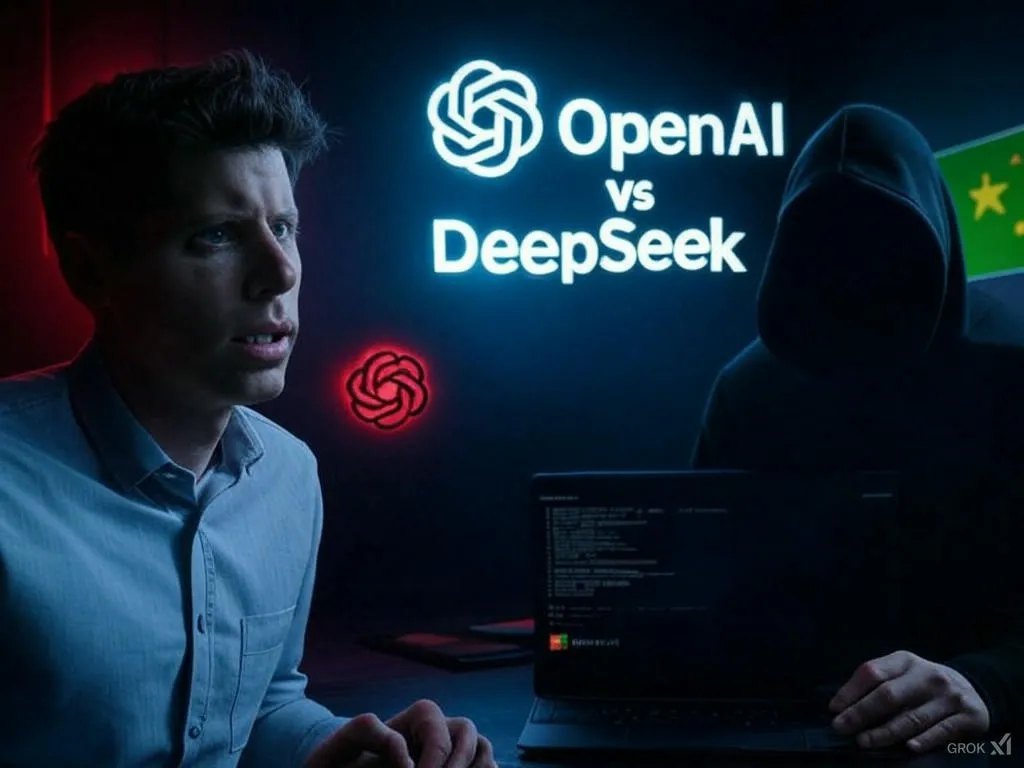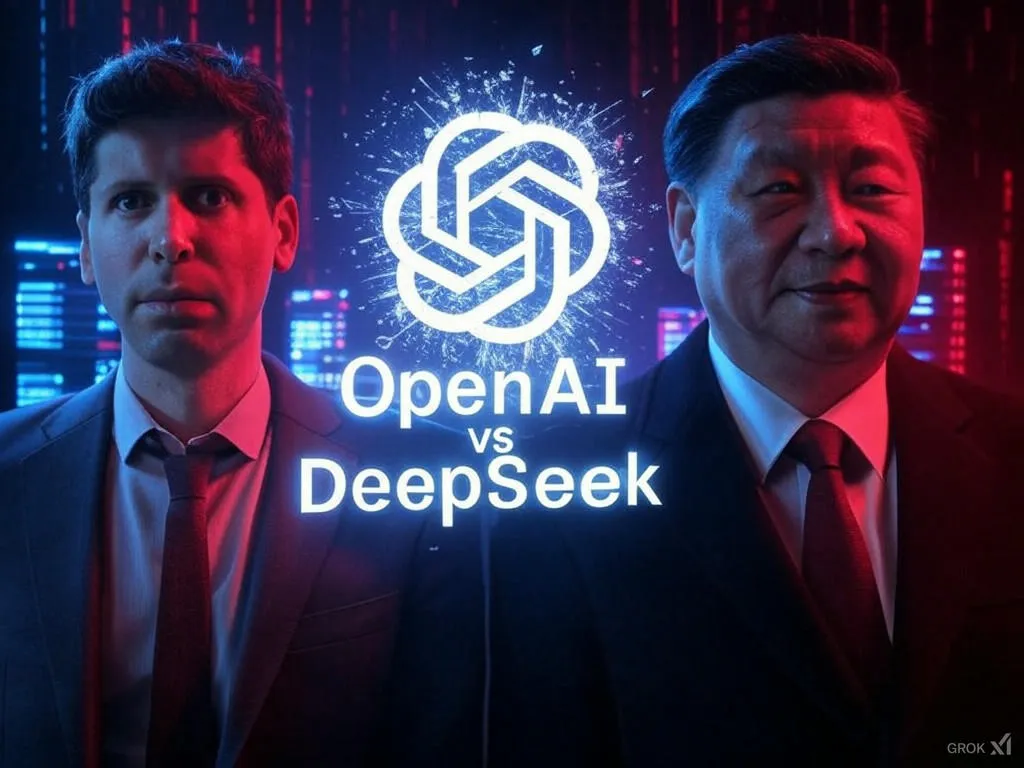Hey, listen up! This AI news just got really interesting. If you don’t know what’s happening, let me explain quickly. DeepSeek, a Chinese AI model, appeared out of nowhere last week and surprised the tech world. They created a super-smart AI model that, according to reports, is even better than OpenAI’s GPT. And guess what? They trained it with just $5.5 million. The craziest part? They gave it away for free! Yes, completely free. But now, OpenAI is fighting back with big accusations. They say DeepSeek copied their technology—basically, stole it. And things get even more serious because Microsoft (OpenAI’s big partner) is supporting this claim. They say they have proof that someone in China was secretly taking a huge amount of data from OpenAI’s servers. Just a coincidence? Probably not.
- The Shocking Truth About OpenAI: From Whistleblower Deaths to OpenAI rogue AI behavior
- The OpenAI Sora Leak: A Bold Protest for Ethical AI Development
- DeepSeek: The CHINESE AI That’s About to DOMINATE the World
- Alibaba Just DESTROYED DeepSeek With This New AI! (Qwen 2.5 is HERE!)

What’s Distillation, and Why is OpenAI Mad?
Here’s what’s happening—OpenAI is accusing DeepSeek of using a method called distillation. This means DeepSeek might have taken OpenAI’s big, expensive model (like GPT) and used its answers to train a smaller, cheaper model. It’s kind of like copying someone’s homework but on a much bigger scale. And the problem? OpenAI’s rules strictly forbid this.
But wait—before blaming DeepSeek, let’s talk about the irony here. OpenAI is saying DeepSeek stole from them, but OpenAI itself has been accused of taking data from all over the internet without permission. Remember when Elon Musk called them out for taking Twitter data? Or when George R.R. Martin and other authors sued them for using their copyrighted books? Yeah, it seems like OpenAI is complaining about something they’ve been accused of doing too.
The Evidence (or Lack Thereof)
Now, here’s where things get really interesting. OpenAI hasn’t shown any solid proof yet. Some screenshots are going around where DeepSeek’s answers look very similar to ChatGPT’s, but that’s not strong evidence. Let’s be honest—this kind of content is everywhere on the internet. DeepSeek could have learned it naturally.

China’s AI Dominance is Heating Up
While OpenAI is busy throwing accusations, China is out here dropping new AI models like it’s hot. Check this out:
| Model | Released By | Key Feature |
| Qwen 2.5 Max | Alibaba | Beats DeepSeek, Claude, and GPT-4 on benchmarks |
| Kim 1.5 | Unknown | Reportedly outperforms OpenAI’s GPT models |
Yeah, the U.S. is kinda… falling behind. Meanwhile, Europe is over here innovating with bottle caps you can’t take off. Priorities, right?
Why DeepSeek is a Game-Changer
So, what’s special about DeepSeek? Apart from all the controversy, it’s super efficient. Instead of using Nvidia’s CUDA platform (which is the most popular way to run AI models), they built their own system from scratch. That’s like creating a website using only raw code—a really difficult task. These engineers are incredibly smart.
But there’s one big concern—if you use DeepSeek online, your data goes straight to China. So, if you care a lot about privacy, it’s safer to use it locally on your own device. Or, well… just avoid the internet altogether!

The Bigger Picture: Open-Source is Winning
But the big question is still unanswered: Did DeepSeek actually steal OpenAI’s technology? Or is OpenAI just trying to protect its reputation after being outperformed?
What’s Next?
This AI battle is only beginning. OpenAI’s accusations, China’s fast progress, and the rise of free, open-source models are changing the tech world.
One thing is certain—this won’t be the last time we hear about DeepSeek.
Read this till the end, because this AI war is just getting started. And trust me, you’ll wanna stay tuned for the next chapter.









